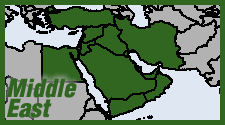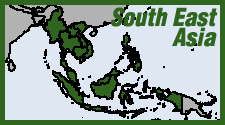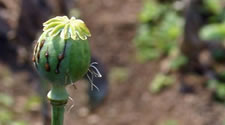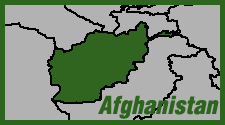 Iran hanged ten men convicted of drug trafficking Oct. 22, defying pleas from the United Nations, European Union and human rights groups. EU foreign policy chief Catherine Ashton said she was "appalled" by the hangings, which add "to the alarming execution rate in Iran"—now at over 300 since the beginning of the year. "Most of the executions took place after summary trials, without the right to appeal and for offenses which according to international minimum standards should not result in capital punishment," she added. "I call on Iran, once more, to halt pending executions and to introduce a moratorium on the death penalty." The 10 men, who were hanged at a Tehran prison, were members of two drug smuggling gangs, according to Iran's judiciary. One of the men, Saeed Sedeghi, was a shop worker who Amnesty International believes was tortured and subjected to mock execution while serving in time in Tehran's notorious Evin Prison.
Iran hanged ten men convicted of drug trafficking Oct. 22, defying pleas from the United Nations, European Union and human rights groups. EU foreign policy chief Catherine Ashton said she was "appalled" by the hangings, which add "to the alarming execution rate in Iran"—now at over 300 since the beginning of the year. "Most of the executions took place after summary trials, without the right to appeal and for offenses which according to international minimum standards should not result in capital punishment," she added. "I call on Iran, once more, to halt pending executions and to introduce a moratorium on the death penalty." The 10 men, who were hanged at a Tehran prison, were members of two drug smuggling gangs, according to Iran's judiciary. One of the men, Saeed Sedeghi, was a shop worker who Amnesty International believes was tortured and subjected to mock execution while serving in time in Tehran's notorious Evin Prison.

 Six men accused of murdering 13 crew members of two Chinese merchant ships on the Mekong River last year pleaded guilty Sept. 20 at their trial in Kunming, capital of China's Yunnan province. The defendants included Naw Kham (also rendered Nor Kham), purportedly one of the most powerful warlords in the Golden Triangle opium-growing region that straddles the borders of Burma, Thailand and Laos. The crew were
Six men accused of murdering 13 crew members of two Chinese merchant ships on the Mekong River last year pleaded guilty Sept. 20 at their trial in Kunming, capital of China's Yunnan province. The defendants included Naw Kham (also rendered Nor Kham), purportedly one of the most powerful warlords in the Golden Triangle opium-growing region that straddles the borders of Burma, Thailand and Laos. The crew were  The UK's Royal Air Force on Aug. 22 boasted that its Reaper drones helped uncover a stash of heroin with an estimated street value of over £10 million. The Reapers, remotely piloted by members of the RAF's 39 Squadron, tracked two vehicles after determining that they were likely to contain the hidden compartments typically used by drug traffickers. One vehicle was low on its suspension, while the rear of an accompanying flatbed truck appeared too shallow, suggesting a hidden storage area. A raid on the two vehicles by Afghan National Security Forces and the US Marine Corps led to the seizure of 1,208 kilograms of dry opium and 59 kilograms of processed heroin. (
The UK's Royal Air Force on Aug. 22 boasted that its Reaper drones helped uncover a stash of heroin with an estimated street value of over £10 million. The Reapers, remotely piloted by members of the RAF's 39 Squadron, tracked two vehicles after determining that they were likely to contain the hidden compartments typically used by drug traffickers. One vehicle was low on its suspension, while the rear of an accompanying flatbed truck appeared too shallow, suggesting a hidden storage area. A raid on the two vehicles by Afghan National Security Forces and the US Marine Corps led to the seizure of 1,208 kilograms of dry opium and 59 kilograms of processed heroin. ( The feds are promising an especially aggressive crackdown on Emerald Triangle cannabis growers this harvest season. "It's one of the most beautiful parts of this country, but it's just being destroyed by marijuana cultivation," said Randy Wagner, the DEA special agent in charge of Northern California operations. "I can tell you, we're going to be hot and heavy in Humboldt County from here on out." An Aug. 26 report n the
The feds are promising an especially aggressive crackdown on Emerald Triangle cannabis growers this harvest season. "It's one of the most beautiful parts of this country, but it's just being destroyed by marijuana cultivation," said Randy Wagner, the DEA special agent in charge of Northern California operations. "I can tell you, we're going to be hot and heavy in Humboldt County from here on out." An Aug. 26 report n the  The US-funded Counter-Narcotics Justice Center (CNJC) in Kabul handles all of Afghanistan's large-scale drug cases—anyone arrested with more than two kilograms of heroin, 10 kilograms of opium, or 50 kilograms of hashish. It has sent hundreds to the city's notoriously harsh Pul-e Charkhi prison, and records show that nearly 98% of defendants are convicted. The conviction rate for drug offenses in the US judicial system is also very high, at 93% for federal cases in 2006—but that is largely due to plea bargains, and the ability of prosecutors to drop cases and judges to grant reduced sentences. In the CNJC there is virtually no leeway for prosecutors to drop cases that are too small or poorly evidenced. Defense attorneys say the high conviction rate means that just about every suspect who arrives at the court ends up in prison for a long time. (Joshua Hersh for
The US-funded Counter-Narcotics Justice Center (CNJC) in Kabul handles all of Afghanistan's large-scale drug cases—anyone arrested with more than two kilograms of heroin, 10 kilograms of opium, or 50 kilograms of hashish. It has sent hundreds to the city's notoriously harsh Pul-e Charkhi prison, and records show that nearly 98% of defendants are convicted. The conviction rate for drug offenses in the US judicial system is also very high, at 93% for federal cases in 2006—but that is largely due to plea bargains, and the ability of prosecutors to drop cases and judges to grant reduced sentences. In the CNJC there is virtually no leeway for prosecutors to drop cases that are too small or poorly evidenced. Defense attorneys say the high conviction rate means that just about every suspect who arrives at the court ends up in prison for a long time. (Joshua Hersh for 





Recent comments
2 weeks 1 day ago
2 weeks 1 day ago
5 weeks 2 days ago
6 weeks 1 day ago
10 weeks 1 day ago
14 weeks 5 hours ago
18 weeks 10 hours ago
18 weeks 5 days ago
28 weeks 5 days ago
32 weeks 6 days ago